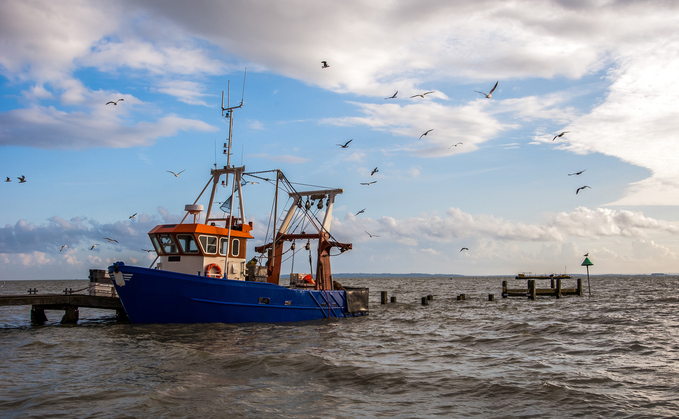Credit: iStock
Volunteers in five fisheries to pioneer wider use of Remote Electronic Monitoring technologies
The government has confirmed plans for the latest phase in its efforts to boost the sustainability of UK fish stocks, announcing a package of new technologies are to be deployed on fishing vessels from this summer to help tackle the risk of over-fishing.
Remote Electronic Monitoring (REM) technologies involving camera, gear sensors, and GPS units are to be deployed to make sure catches are accurately recorded and fish are not unlawfully thrown back into the sea.
Volunteers within five priority fisheries are to begin using the REM systems from this summer, with their work helping to refine plans to bolster monitoring across the industry.
The government has said that once monitoring objectives have been finalised and the REM systems are demonstrated to be working effectively, the approach will become mandatory for all vessels in designated fisheries, including non-UK vessels.
The information generated through the advanced monitoring is designed to ensure sustainable fishing quotas are kept to, support the long-term profitability of the sector, and provide retailers and customers with assurance sustainability standards are being adhered to.
Fisheries Minister Mark Spencer said the UK's departure from the EU had given the government to develop a more sustainable approach to fisheries management that is the in the best interest of both the fishing industry and the environment.
"By harnessing this technology, we can sustainably manage our fish stocks, to benefit the industry, future generations, and our marine environment," he said.
The government also confirmed yesterday that a different approach to managing discards is to be adopted in England, with changes to be made to better account for catches.
From 2025, landings and discards will both be counted against quota allocations, and the amount of quota used to cover discards will vary and will depend on the type of vessel and gear types used. In addition, new discard reduction schemes are to be established to identify ways to reduce unwanted catch in the first instance.
The changes were confirmed in formal government responses to consultations on remote electronic monitoring and discards reforms.
In related news, the Department for Environment, Food and Rural Affairs (Defra) today announced the launch of a new expert advisory group to explore possible routes to generate commercial returns for the taxpayer from the department's R&D and innovation spending.
The government is inviting leading experts in academia, business, and the financial sector to apply to join the group, which will explore how to best deliver funding to support innovative projects while increasing value for money for the taxpayer.
The group explore the potential for a new fund, as well as alternative arrangements such as joint ventures, revenue sharing arrangements, and the licensing of intellectual property to maximise the benefits of Defra's agricultural and environmental R&D and innovation spending.
Environment Secretary Steve Barclay said: "Science and technology are fundamental to strengthening our food security, enhancing nature and protecting our environment. From new technologies driving more productive and sustainable farming to maps and models for managing invasive species, research and development has the potential to transform the way we manage our land and feed our nation.
"We are now recruiting for a specialist advisory group to explore options for a more commercial approach to Defra's R&D and innovation funding, from revenue sharing to setting up a dedicated new fund for innovation whilst offering the taxpayer a return on their investment. I encourage anyone with expertise in the fields of finance, venture capital, intellectual property and innovation to apply."
You can now sign up to attend the fifth annual Net Zero Festival, which will be hosted by BusinessGreen on October 22-23 at the Business Design Centre in London.










